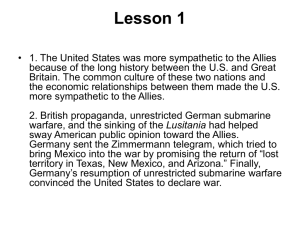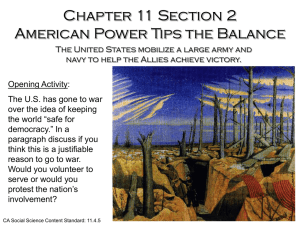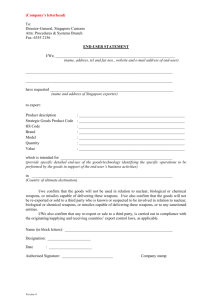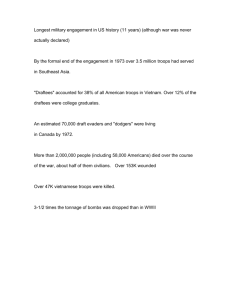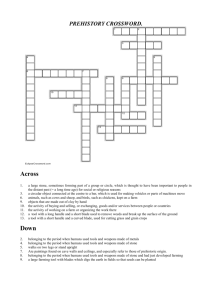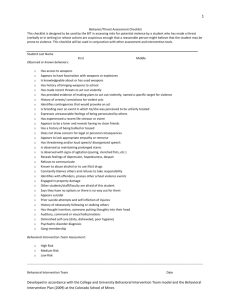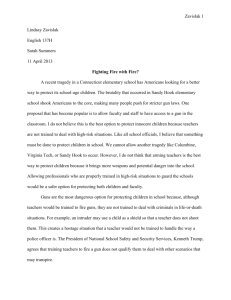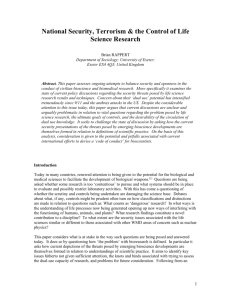George Orwell, The Collected Essays, Journalism and Letters. 9
advertisement
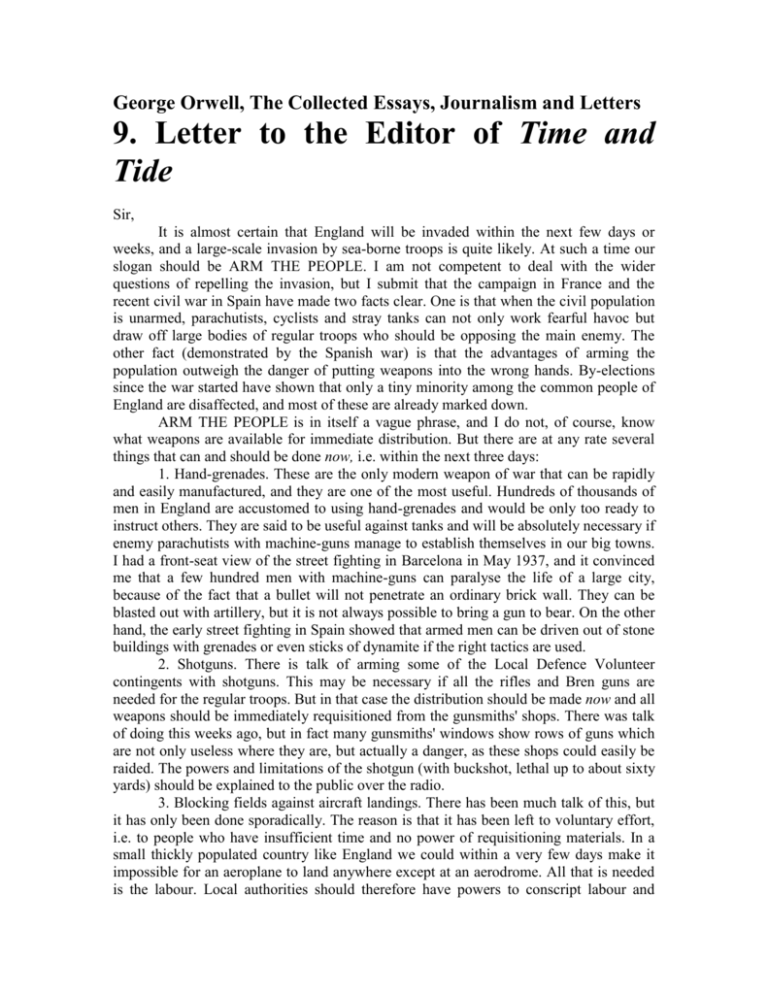
George Orwell, The Collected Essays, Journalism and Letters 9. Letter to the Editor of Time and Tide Sir, It is almost certain that England will be invaded within the next few days or weeks, and a large-scale invasion by sea-borne troops is quite likely. At such a time our slogan should be ARM THE PEOPLE. I am not competent to deal with the wider questions of repelling the invasion, but I submit that the campaign in France and the recent civil war in Spain have made two facts clear. One is that when the civil population is unarmed, parachutists, cyclists and stray tanks can not only work fearful havoc but draw off large bodies of regular troops who should be opposing the main enemy. The other fact (demonstrated by the Spanish war) is that the advantages of arming the population outweigh the danger of putting weapons into the wrong hands. By-elections since the war started have shown that only a tiny minority among the common people of England are disaffected, and most of these are already marked down. ARM THE PEOPLE is in itself a vague phrase, and I do not, of course, know what weapons are available for immediate distribution. But there are at any rate several things that can and should be done now, i.e. within the next three days: 1. Hand-grenades. These are the only modern weapon of war that can be rapidly and easily manufactured, and they are one of the most useful. Hundreds of thousands of men in England are accustomed to using hand-grenades and would be only too ready to instruct others. They are said to be useful against tanks and will be absolutely necessary if enemy parachutists with machine-guns manage to establish themselves in our big towns. I had a front-seat view of the street fighting in Barcelona in May 1937, and it convinced me that a few hundred men with machine-guns can paralyse the life of a large city, because of the fact that a bullet will not penetrate an ordinary brick wall. They can be blasted out with artillery, but it is not always possible to bring a gun to bear. On the other hand, the early street fighting in Spain showed that armed men can be driven out of stone buildings with grenades or even sticks of dynamite if the right tactics are used. 2. Shotguns. There is talk of arming some of the Local Defence Volunteer contingents with shotguns. This may be necessary if all the rifles and Bren guns are needed for the regular troops. But in that case the distribution should be made now and all weapons should be immediately requisitioned from the gunsmiths' shops. There was talk of doing this weeks ago, but in fact many gunsmiths' windows show rows of guns which are not only useless where they are, but actually a danger, as these shops could easily be raided. The powers and limitations of the shotgun (with buckshot, lethal up to about sixty yards) should be explained to the public over the radio. 3. Blocking fields against aircraft landings. There has been much talk of this, but it has only been done sporadically. The reason is that it has been left to voluntary effort, i.e. to people who have insufficient time and no power of requisitioning materials. In a small thickly populated country like England we could within a very few days make it impossible for an aeroplane to land anywhere except at an aerodrome. All that is needed is the labour. Local authorities should therefore have powers to conscript labour and requisition such materials as they require. 4. Painting out place-names. This has been well done as regards signposts, but there are everywhere shop-fronts, tradesmen's vans etc., bearing the name of their locality. Local authorities should have the power to enforce the painting-out of these immediately. This should include the brewers' names on public houses. Most of these are confined to a fairly small area, and the Germans are probably methodical enough to know this. 5. Radio sets. Every Local Defence Volunteer headquarters should be in possession of a radio receiving set, so that if necessary it can receive its orders over the air. It is fatal to rely on the telephone in a moment of emergency. As with weapons, the Government should not hesitate to requisition what it needs. All of these are things that could be done within the space of a very few days. Meanwhile, let us go on repeating ARM THE PEOPLE, in the hope that more and more voices will take it up. For the first time in decades we have a Government with imagination,14 and there is at least a chance that they will listen. 14. On 10 May the Chamberlain Government had fallen and Winston Churchill became Prime Minister at the head of a Coalition Government. I am, etc. George Orwell Time and Tide, 22 June 1940
